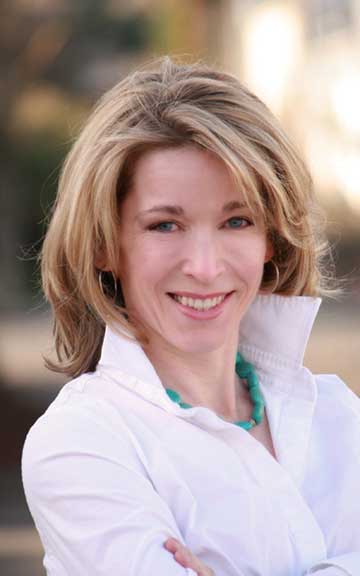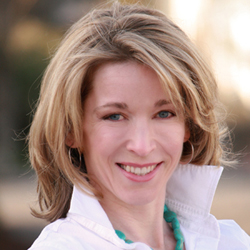“Recognizing the sacred begins, quite simply, when we are interested in every detail of our lives.” ~Chogyam Trungpa
“Life is a banquet and most poor suckers are starving to death.” ~Mame
Two weeks ago my daughter and I had a nasty little tumble from my bicycle, which plopped us rudely onto Third Street and left us battered and bruised. Being five, Sophia recovered at the speed of light. Being some decades past five, I am still purple and in pain.
As with all trauma, pain offers the assistance and blessing of causing one’s world to become incredibly small: all the details and to-do lists evaporate and life slows to a centered simplicity, as in “let’s see if I can manage to lie down without crying.”
It was in just such a state of limitation that I lay down under our century-old apple tree on a recent, glorious, May afternoon. The breeze was soft, the rich, green leaves of the tree giving way to geometric patterns of blue sky. I listened to see how many different bird songs I could discern and watched our resident titmouse swoop down onto a branch, caterpillar in beak, eying me carefully before darting into the hole from which persistent cries of invisible babies emerged.
It was a strange juxtaposition to be in such pain and simultaneously so enraptured by the beauty around me. I figured there must be a column in this, and thought about titling it “In praise of indolence,” because I always want to write something witty and acerbic even though I know it will end up being somehow more serious and thoughtful.
But indolence did not create this experience of wonder: the bike accident did, in a roundabout way. It was a Zen slap, instantly refocusing and awakening me to truth. “Beauty is truth, truth beauty. That is all ye know on Earth, and all ye need to know.”
I already spend much of my time appreciating the beauty around me, and much of my time thinking about the essence of things. But, true to human form, I can easily become derailed by details: what I’ll make for dinner, the article that’s due tomorrow, money, health, clients…the usual litany of the mundane. My engrained pattern of default is to get everything done before I lie under the tree. I can too easily fall prey to the Martha Stewart-borne sickness, the “if you have time to sit down, you have time to crochet a rug” sort of insanity.
But the crash brought me, once again, back to earth–literally. Suddenly, making dinner and writing agents and getting my article written gave way to lying under the tree and experiencing the sacred. How very nice. Despite–or because of–a throbbing shoulder, Life revealed a wholly (holy) wondrous experience, one I might easily have missed.
Sacred is related to holy, which has roots in the meaning “that which must be preserved whole or in tact.” The sacredness of Life is destroyed when we separate matter and spirit and begin to treat them as two distinct things, worse still when we begin to value the former over the latter.
“Miracles,” the recognition of the sacred in everyday life, occur when we turn our interest and attention to the here and now, when we shift our values. (Good-bye, Martha, Hello, Buddha.) If we get thrown off our bikes enough, the overvaluation of efficiency and activity can give way to attention and interest, creating the foundation for a meaningful life.
I’m talking about reversing the four hundred year old Cartesian philosophy that created a dualistic world–a world split into neat and definable categories of “science” and “spirit, ” a world that lost it’s wonder and lost it’s soul, and reunifying it, reanimating the world (anima=soul) and the imagination.
The sacred is here whether or not we choose to appreciate it. Miracles abound; seeing them is really a matter of interest. All you need is to have your eight year old ask you how particles make you grow, or to watch a titmouse in an apple tree to realize that it’s all miraculous and that you really can’t explain it. Furthermore, you don’t need or want to explain it; you just want to appreciate it. And that’s when a bruised shoulder, or a broken life, becomes whole again.
Kate Ingram, M.A., is a writer, therapist and life coach. She can be reached through her website, www.katherineingram.com


 KATE INGRAM, M.A., is a counselor, soul coach and author. Her first book, Washing the Bones: A Memoir of Love, Loss, and Transformation about her journey through grief and depression to spiritual awakening, was awarded a 2014 Nautilus Silver Medal and a 2014 Indie Book Award. To receive free monthly inspiration or to find out more about her work, please visit
KATE INGRAM, M.A., is a counselor, soul coach and author. Her first book, Washing the Bones: A Memoir of Love, Loss, and Transformation about her journey through grief and depression to spiritual awakening, was awarded a 2014 Nautilus Silver Medal and a 2014 Indie Book Award. To receive free monthly inspiration or to find out more about her work, please visit